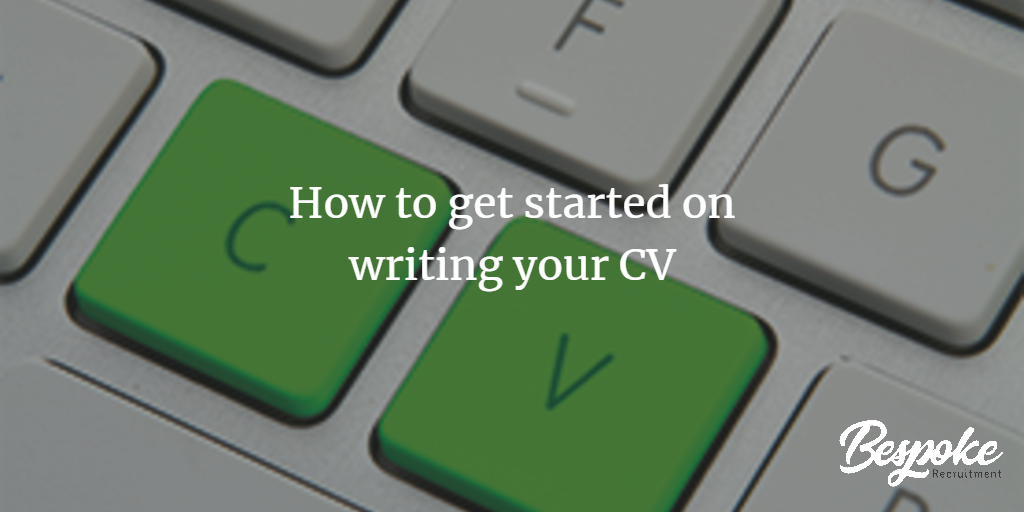What should I be including on my CV?
The humble CV has been around almost as long as recruitment itself. Technology has enhanced the way we submit applications but inevitably at somewhere in an application process, you will be asked to upload your CV here. Before we get started its important to mention that there’s no magic formula for CV writing. You could ask 10 different people and get 10 different opinions. Here’s some guidance as to what you should be including in your CV.
1 – Let’s start with your personal/contact details
Sound obvious but be sure to let them know who you are and how they can contact you. Believe me, I’ve read many CV’s that have been missing vital information such as a contact number. If you are applying via a recruitment/job sites (such as Reed or CV Library), don’t assume because you have completed your profile that those details will automatically be sent to through to the final reader of your CV. Key details to include here include your full name and various options of how the reader can contact you, such as Email, Mobile and LinkedIn Profile link (If applicable). There’s no need to be writing “Curriculum Vitae” above your name or adding your date of birth to your CV either (I still see many CV’s with the D.O.B section still included)
2 – Time to put on your sales head and devise a killer personal profile
This is your time to shine, a real opportunity to ensure your CV stands out from the other applications. It’s often the section that will take you the longest to construct, so do invest time here. I’ve worked with thousands of candidates who struggle at this point, so don’t worry if that’s you too, you’re not alone. Keep it short, it doesn’t need to be a long-winded sales pitch, keep it to one or two paragraphs at most. Try and avoid cliché phrases such as “excellent communicator” and “self-motivated” after all no one is going to sell themselves as a poor communicator in this section are they. Focus entirely on what you can offer, tailoring it to the role specification if applicable. It’s often a good idea to ask someone close to you (not your boss of course!) to read your profile and offer their honest appraisal of how it reads.
3 – You worked hard for those qualifications, let’s shout about them
Always ensure you add your qualifications along with dates studied/qualified, educational establishments, grades/classifications and any professional memberships such as CIMA/ACCA or ICM etc. A word of warning here though, keep it relevant, I once had a candidate arrive for a registration meeting who proceeded to show me his school swimming certificates. Whilst I agree, it was a great achievement to retrieve a rubber brick from the bottom of a 3-metre deep pool in his pyjamas, it wasn’t going to help his application.
4 – OK, let's tell them all about your work experience and achievements
When it comes to CV writing, this is often one of the easier sections to complete. You may find it easier to start here before you tackle the other sections. List all of your relevant work experience, with the most recent role first. Ensure you include dates, organisations, role title, key responsibilities and achievements. It’s important to give the achievements section some thought as its often what will help you stand apart from other applicants. Something I always like to see included here is a short description or weblink about your employers business. Offer the reader a summary of your former employers business purpose. It doesn’t need to be more than a single sentence but can help paint a picture for a prospective client as to the type of business you worked with. It could, of course, carry some relevance to the sector/industry to which you are applying too and add some extra appeal.
5 – CV writing is not all about your work activities
Ok, so it's not the most important section but you should still give it some thought. Your hobbies and interests can often highlight additional skills/attributes you can bring to the table. A word of warning though, keep it relevant, don’t be my “swimming certificate” candidate. It’s perhaps best to avoid any of those clichés here too, “socialising with friends” may not be the best way to sell yourself. Hobbies and interests can often provide a good ice-breaker to talk about at the interview too. I once had a client who’s daughter played in the same orchestra as an applicant to his role, I believe the orchestra discussion took up most of the interview conversation (Yes, she got the role).
6 – A few final thoughts…
- Try to avoid generic points, be specific. Accountant in particular love numbers, don’t say you “process high volume invoices”, reword it as “processing 150 invoices per day”.
- Study any role and person specifications to understand what the client is looking for and tailor your CV to each application.
- Don’t waffle, less is sometimes best, be succinct and factual (no lies please).
- Ensure you chose an appropriate font and keep it consistent throughout the CV.
- Make sure you, use as an appropriate tool to check grammar and spelling, I find Grammarly a great free Google Add-in.
- Don’t wait until your applying to a role to update your CV, treat it as a work biography and update as you go along.
As I mentioned at the start of this article, people’s opinions will differ, you could talk to many different professionals and hear a range of DO’s and DON’T’s when it comes to constructing a professional CV. I appreciate that CV writing for many is not an easy task, rest assured I've been helping people construct theirs since 2002. If you would like help in putting together a professional CV please don’t hesitate to contact me by clicking here.

